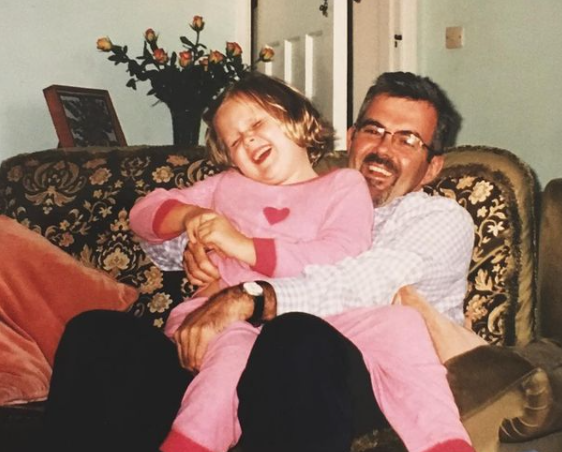By India Garrett
I am experiencing grief, a loss like nothing I have felt before. It is something that creeps up on me unexpectedly, catches me off guard and throws me off course. My life is permanently changed and yet, no one is talking about it.
In December, my dad died after nine years of cancer and it has been a very strange time, particularly since being back at university. I am more anxious, more indecisive, more emotional. I cry because I don’t know what I want for dinner and laugh at the inappropriate jokes I make. I am sad, but equally, I am so incredibly frustrated.
I know that everyone grieves differently, and that perhaps some don’t want to discuss their emotions, that it’s too soon to bring up their loved one and they would rather process everything internally, but that is not me. I am trying to keep my dad close, to summon my memories to the forefront of my mind and to feel him with me daily, yet I’m struggling to do so because my immediate circle are saying nothing. They are censoring themselves to the point where they aren’t acknowledging what I’m going through, they don’t ask questions or continue conversations when I bring him up. I don’t know if they are scared of upsetting me, if they think I’m fine or if it slips their minds in the busyness of their own lives, but regardless, I am desperate for a change.
As a result of the censorship of their own speech, I feel like the same is being done to mine. I am scared to bring things up for fear of making people uncomfortable, for feeling like a burden and perhaps I worry they’ll feel guilty for not actually addressing it. Clearly, I don’t want this. I want an open conversation. I want to share my memories, stories and laughter with my friends. I want to open up about my confusion, my anger, my sadness and for them to understand that it’s ok to acknowledge my dad. He has died but he also lived, just because he is gone does not mean his name has to be reduced to a whisper.
I want to open up about my confusion, my anger, my sadness and for them to understand that it’s ok to acknowledge my dad. He has died but he also lived, just because he is gone does not mean his name has to be reduced to a whisper.
Dad was hilarious and more than anything it is the endless laughter that I’ll remember. He planned the most incredible holidays and seemed to know how to get anywhere without looking at a map. He had three successful careers and ran five London marathons. He could get on with anyone and knew the importance of good relationships. He thought warthogs were called ‘waterhogs’ and got confused between risotto and ravioli. He was rubbish at knowing song lyrics but he was brilliant at knowing about castles. He has made my siblings and I who we are, and I want to tell people about that.
Talking about grief is so crucial to the healing. This sounds obvious and yet many forget. It helps people to process emotions they may not have even realised they were feeling, it can help people feel closer to who they’ve lost, it acts as a form of release and can prevent the immense isolation that can feel so heavy. That is not to say you should put your life on hold and constantly be ready to be there for anyone experiencing it, almost the opposite. By discussing grief we are normalising it, we are making it part of the everyday, it is something we will all experience at some point, so why is it so rarely talked about? We don’t need to always take time out of our day to have emotional conversations, we just need to mention it, even if it’s just in passing.
Perhaps I should be saying this directly to my friends, in fact I know that I should, but I am hesitant to make that step. I feel as though I am too busy processing my own thoughts and emotions to worry about what theirs’ are. I know everyone is going through things and I know life has not stopped just because of what I am experiencing. I don’t know how I would behave if our roles were reversed but that being said, I do know the importance of being aware of people’s lives, of acknowledging the experiences they’ve had and those they may be having.
So uncensor yourselves, when someone is experiencing loss, acknowledge it. Ask them questions, bring up death, let them tell you about the person, about how they are feeling, about the things they’re thinking. Do not tiptoe around their grief as though you are scared you’ll set it off. You are not a trigger, you are their support.




